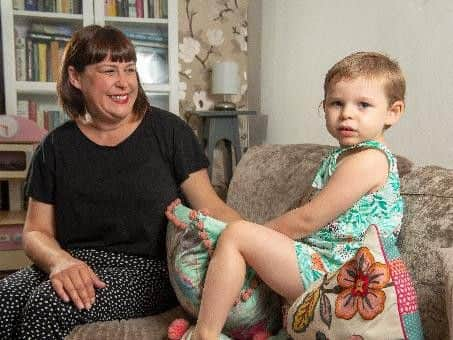What is fatal illness Batten disease?
There are an estimated 100 to 150 people in the UK living with a diagnosis, according to the Batten Disease Family Association.
The symptoms see a loss of abilities, resulting in blindness, complex seizures, decline of speech, language and swallowing skills.
Advertisement
Hide AdAdvertisement
Hide AdUltimately, the child becomes completely dependent on their families, and death is inevitable.


An enzyme replacement treatment from company BioMarin has proved to drastically improve the quality of life for children in trials carried out in the UK.
It is believed that it could help to stave off symptoms for decades, improving a young person's quality of life for 30 years.
But the drug is not recommended for use on the NHS, after advisory body NICE found there wasn't enough evidence that it could stabilise the condition long term, or prevent death.
Advertisement
Hide AdAdvertisement
Hide AdThe drug had proven "substantial" short term benefits, it conceded, but could not consider it value for money given its cost.
A number of families of children and babies affected by the condition are fighting against this decision, and negotiations have now reopened.
“After the NICE Highly Specialised Technologies committee meeting held on July 25, NHS England and the company have agreed with NICE to undertake further work on the value proposition of cerliponase alfa for consideration by the committee," a spokesman said.
"We envisage this work will be completed in the near future. NICE will not issue draft final guidance on this topic while these discussions are ongoing."
Advertisement
Hide AdAdvertisement
Hide AdThe drug is commissioned in a number of other countries, and one family facing the same situation as Connie's is now moving to Holland.
The NHS argues the drug should be "fairly and responsibly" priced to offer patients access at a cost which offers the best possible value for the public, while allowing investment in research and development.
An NHS spokesperson said: “To date BioMarin has not been prepared to supply Cerliponase Alfa at a fair and reasonable price to the NHS, so we are pleased that following our request and the wishes of patients, their families, and MPs, BioMarin has now agreed to re-enter discussions with us."